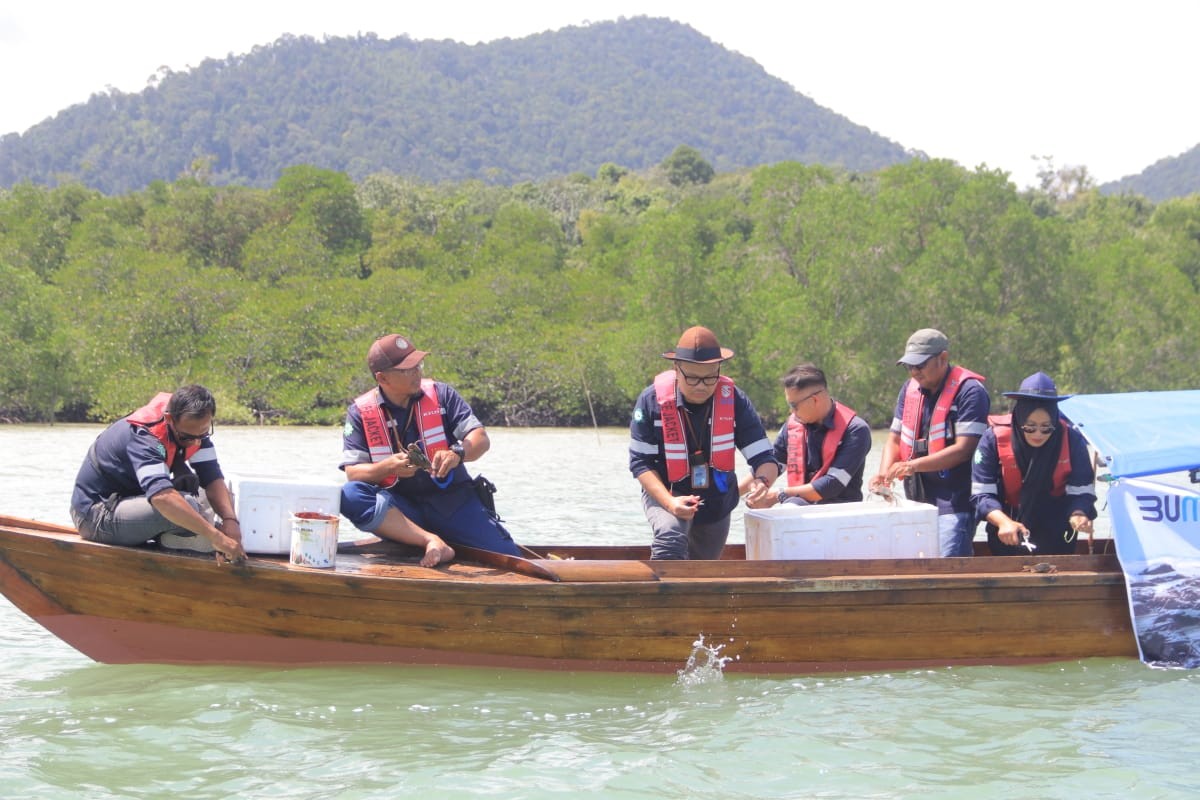
KUNDUR – Coastal ecosystems play a vital role in preserving the marine environment and its natural resources. PT Timah Tbk continuously works to protect coastal ecosystems through mangrove planting and restocking efforts, including releasing crab seeds.
Most recently, PT Timah Tbk's Kundur Area Head released thousands of mangrove crab seeds into the waters of Kundur and Karimun from Thursday to Saturday (5-7/12/2024).
This crab release event was attended by Ruddy Nursalam, PT Timah Tbk's Division Head of HSE and Sustainability, as well as local fishermen's groups and community members.
The initiative aims to restore the mangrove crab population in its natural habitat, promote sustainable development, and provide economic benefits for the local fishing communities.
Before releasing the crab seeds, PT Timah had already undertaken mangrove planting in the area, creating a suitable environment for the crabs to thrive.
Idrus, the head of the fishermen’s group in Gemuruh Village, highlighted that crab populations in Kundur waters had significantly decreased, making it challenging for fishermen to catch crabs.
“Over the past few years, PT Timah has frequently released crab seeds, and as a result, crab populations have started to recover,” he said.
He also noted that crabs are economically valuable, with high demand, which can significantly boost the income of local fishermen.
Similarly, Abdul Jamal, the village head of Pongkar, expressed his gratitude to PT Timah for their efforts in restocking crab populations in the area.
“We hope the crabs released today will grow well and bring benefits to the community,” he said.
He added that many seafood restaurants in Karimun offer crab dishes, but most of the crabs are sourced from outside the region.
“Once again, we sincerely thank PT Timah for consistently contributing to the community and the environment,” he concluded. (*)